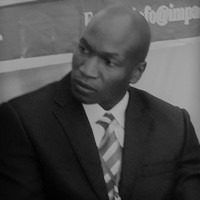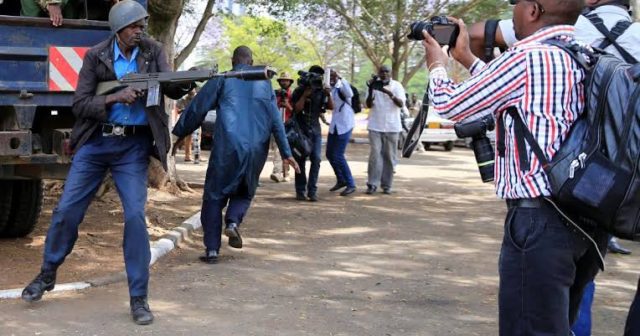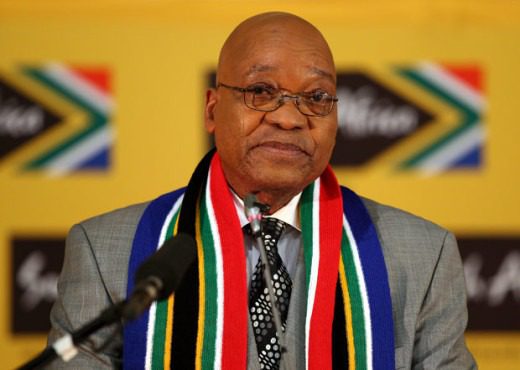Democracy & Governance
COVID-19: Media Freedom In Kenya And Why It’s Important To Protect It Now More Than Ever -By Ohaga Ohaga

COVID-19: Media Freedom in Kenya and why it’s important to protect it now more than ever
Media across the world is regarded as a Fourth Estate because it’s expected to act as a ‘watchdog’ over politicians.
Eric Louw in his book Media and Political Process notes that the term Fourth Estate was originally coined by The Times Editor John Delane in the mid-19th Century at a time when British was experiencing political turmoil. The turmoil according to Louw was with regard to ‘’urbanization and industrialization transforming the social landscape, producing a restive urban underclass’.
In The Times 1852 editorial, Delane wrote: ‘’the first duty of the press is to obtain the earliest and most correct intelligence of the events of the time and instantly by disclosing them to make them the common property of the nation. The press live by disclosures…bound to tell the truth as we find it without fear of consequences – to lend no convenient shelter to acts of injustice and oppression, but to consign them to the judgement of the world…the duty of the journalist is the same as that of the historian – to seek out truth, above all things and to present to his readers not such things as statecraft would wish them to know but the truth as near as he can attain it (Louw, 2013; Delane, in Shultz, 1998).

Due to their active participation of ensuring that the three arms of the government- Legislature, Judiciary and the Executive don’t misuse their power, the media’s role often create conflict with the aforementioned.
Media’s key objectives are to inform, educate and entertain. It’s also expected to provide checks & balances on the Government. To do this, the media is expected to be autonomous. But few governments like a free and independent press. Even in mature democracies like the US, media’s freedom is constantly under threat.
The press as the fourth estate is deemed to be a separate entity within the larger political process. This implies that the media just like the three arms of the government is independent. However, beyond sharing the same rights as the three, the media is more privileged in that it has additional powers of oversighting the excesses of the other three.
Before the promulgation of the Kenyan Constitution (2010), the media in Kenya had been under constant threat, harassment and intimidation by the government. This situation could have been orchestrated by a number of factors notably; the authoritarian rule that existed at that time, mistrust by the ruling elite (that media was not up to no good and had to be clamped upon); oppressive rules coupled by lack of legislation that expressly defended freedom of expression; freedom of the press and access to information as is currently envisaged in Chapter 4, Part 2, Section 33, 34 and 35 respectively of the Kenyan Constitution (2010).
However, even with the provision of the same in the Constitution, the media has in numerous occasions been attacked. The Executive particularly has been very notorious with regard to media attacks. For instance, when President Kenyatta declared a 7PM to 5AM nationwide curfew in March 27, a Nation Media Group NTV cameraman was clobbered by an Administration Police officer at the Likoni ferry while he discharged his duties. A day later, a cameraman with Weru TV was accosted by three Administration Police officers and ordered to delete the video footage while covering the police enforcing the curfew. The assault on Wainaina and Murithi aren’t isolated cases.
Attacks on the media has been a regular occurrence in Kenya in the recent past. Out of the 47 Counties in Kenya, at least 13 counties have been on the spot for aggression against the press. Between 2015 and 2020 scores of journalists have either been injured, tortured or killed in different parts of the country.
Onwards, Kenyans must know that the media is an ally and not a foe. The society must learn to appreciate and protect the freedom of the press. This is because an affront on the media is also an affront on their freedom.
With restricted formal space for citizen participation especially in the wake of COVID-19, the media is the only reliable source of information they have. The society cannot enjoy their rights in Articles 33 and 35 when Article 34 is dead. Their right to speak is only guaranteed if media is also free to report it. Media is their only conduit between them and the government. The attacks on the press therefore compromises the work of journalists hence restraining their capability to fully execute their mandate.
That said, I do believe that the attacks on the press is something that Kenya can firmly deal with if only organizations mandated to protect the interests of the press are vocal enough. Media Council of Kenya (MCK), Kenya Union of Journalists (KUJ), and Kenya Editors Guild can certainly do better.
Two, there are way too many organizations purporting to represent the interest of the media. Beyond the MCK and KUJ, there are other media associations, such as the Association of Media Women in Kenya (AMWIK), the Kenya Journalists Association, the Kenya Parliamentary Journalists’ Association (KPJA), the Foreign Correspondents Association of East Africa, the Kenya Business Writers’ Association, The Senior Women Editors Group, the Kenya Correspondents Association (KCA), the Science Reporters’ Association, the Kenya Sports Writers Association, the Environmental Journalists Association, the Kenya Association of Designers and Illustrators and the Association of Women Journalists. All these organizations aim at promoting interest of the journalist. Whether they do so or not is a subject for another day.
Thirdly, there exists 12 other laws in the country that also purport to provide guidance to the media operations. These include the Kenya Films and Stage Plays Act of 1963; The Kenya Broadcasting Act, Cap 221 of 1988; The Copyright Act, Cap 130; 1966; The Books and Newspapers Act, Cap 111; 1930; The Defamation Act, Cap 36; 1970; The Armed Forces Act, Cap 199; 1968; The Official Secrets Act, Cap 187 of 1968; The Preservation of Public Security Act, Cap 57; 1960; The Public Order Act, Cap 56; 1950; The Police Act, Cap 84; 1988; The Penal Code, Cap 63; 2014; and The Chief’s Authority Act, Cap 128; 1937. These are very strong anti-media laws that emasculate media freedom.
Kenyan media has made tremendous strides in professionalizing its operations; however, more still needs to be done especially with regard to how the state treats journalists while on an assignment.
Ends…//
About the Author
Ohaga Ohaga is a Kenyan Journalist, Writer and Communication Specialist with special interest in Media Law and Political Communication. He remains a close observer of, and participant in, Journalism and the Media.
Brief Bio
Ohaga started his journalism career as contributor for a local monthly newspaper called MissionsField based in Eldoret Kenya in 2005. Between 2005 and 2006, he occasionally submitted commentary articles to Op-Ed which were published in the Daily Nation and the Standard Newspaper. In 2006, he interned at Kenya Times Newspaper– Kisumu Bureau where he wrote several features that were published the same publication. After completing his Diploma, he joined Pamoja FM as a radio journalist in 2008 to 2009 before joining Workers Voice Newspaper – a publication of Labor Party of Kenya as a writer/editor. In 2010, he became a Project Manager for Journalists for Media Development in Kenya training cub-journalists in High schools. In 2011, he joined a national NGO as a Communication Officer where he labored for over four years. Ohaga is a multi-talented individual with skills in creative writing, TV scripting, photography and videography with at least 10 years of media and communication practice. He currently works as a communication and media consultant. He holds a Diploma in Journalism and Mass communication; BA, Mass Media & Communication and a continuing student of MA, Communication & Media Studies at a local University.
Email: ohagaohaga@gmail.com.
Cellphone: +254721394951. Twitter handle: @ohagaohaga




















